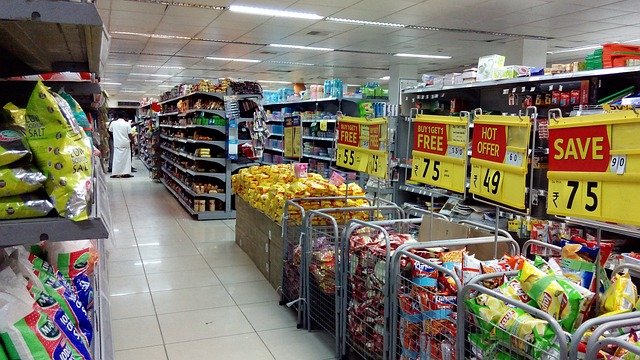Working in Dubai: Your Complete Guide to the UAE Job Market
Dubai has transformed from a small trading hub into a global economic powerhouse offering diverse career opportunities across multiple sectors. As one of the seven emirates in the United Arab Emirates (UAE), Dubai attracts professionals worldwide with its tax-free income, multicultural environment, and strategic location between East and West. This guide explores everything you need to know about finding employment, understanding the work culture, and navigating the job market in this dynamic city.

How to Land a Job in Dubai
Finding employment in Dubai requires strategic planning and understanding of the local job market. While the city offers numerous opportunities, competition can be intense. This guide provides general information about the job market in Dubai rather than specific job listings.
The first step to securing work in Dubai is researching the market. Many international companies have regional headquarters in Dubai, particularly in sectors like finance, hospitality, construction, and technology. Job portals like Bayt.com, Gulf Talent, and LinkedIn are popular resources for job seekers, though they feature general listings rather than guaranteed positions.
Networking plays a crucial role in the Dubai job market. Many positions are filled through referrals and connections before being advertised publicly. Professional networking events, industry conferences, and expatriate forums can be valuable for making contacts. Remember that these networking opportunities are ways to learn about potential future openings rather than direct hiring channels.
For non-UAE nationals, securing employment typically requires sponsorship from an employer who will handle the work visa process. It’s important to understand that this article provides general guidance rather than specific job opportunities, and all employment is subject to visa requirements and employer sponsorship.
High-Demand Jobs in Dubai in 2025
Based on current market trends and development plans, certain sectors are projected to offer more opportunities in Dubai through 2025. This information reflects general industry trends rather than specific job openings.
The technology sector continues to grow rapidly, with increased demand expected for AI specialists, data scientists, cybersecurity experts, and digital transformation consultants. Dubai’s Smart City initiative is driving this technological surge, creating a general need for skilled professionals in these areas.
Healthcare is another expanding sector, particularly as Dubai positions itself as a medical tourism destination. Specialists in various medical fields, healthcare administrators, and medical technology experts may find opportunities increasing, though specific positions will depend on individual healthcare providers’ needs.
Sustainability and renewable energy professionals are likely to be in demand as the UAE pursues its vision for a greener future. The country’s commitment to diversifying away from oil dependency is creating a general trend toward green jobs, though specific openings will vary by company and project.
Tourism and hospitality continue to thrive in Dubai, with luxury hotel management, event planning, and tourism development professionals likely to find a favorable market. While these sectors are growing, job seekers should research specific companies and their hiring patterns rather than expecting immediate openings.
Job Benefits and Work Culture in Dubai
The work culture in Dubai blends international business practices with local traditions and values. Working hours typically follow a Sunday to Thursday schedule, with Friday and Saturday forming the weekend. During Ramadan, working hours are reduced by two hours daily for all employees, regardless of religious background.
One of the most attractive aspects of working in Dubai is the tax-free income, though this benefit should be verified based on your home country’s tax requirements, as some nations require citizens to pay taxes on foreign income. Most professional positions offer comprehensive benefits packages that may include:
-
Health insurance (typically employer-provided and mandatory)
-
Annual flight tickets to your home country
-
Housing allowance or accommodation
-
Transportation allowance
-
Education allowance for children (for senior positions)
-
End-of-service benefits based on years of service
Work culture in Dubai emphasizes respect, professionalism, and hierarchy. Business relationships often begin formally, with greater warmth developing over time. Punctuality is highly valued, and business attire tends to be conservative. While Dubai is more liberal than other parts of the region, cultural sensitivity remains important in the workplace.
Salary Expectations in Dubai
Compensation packages in Dubai vary widely based on industry, experience level, and nationality. The following table provides general salary ranges rather than guaranteed compensation, as actual offers may differ significantly:
| Sector | Position Level | Monthly Salary Range (AED) | Benefits Typically Included |
|---|---|---|---|
| Banking/Finance | Mid-level | 15,000 - 30,000 | Health insurance, annual flights |
| Banking/Finance | Senior | 30,000 - 70,000+ | Health insurance, housing, education, annual flights |
| IT/Technology | Mid-level | 12,000 - 25,000 | Health insurance, annual flights |
| IT/Technology | Senior | 25,000 - 60,000+ | Health insurance, housing, annual flights |
| Healthcare | Mid-level | 15,000 - 30,000 | Health insurance, annual flights |
| Healthcare | Specialist/Senior | 30,000 - 80,000+ | Health insurance, housing, education, annual flights |
| Hospitality | Mid-level | 8,000 - 15,000 | Health insurance, accommodation, meals |
| Hospitality | Senior/Executive | 20,000 - 45,000+ | Health insurance, housing, annual flights |
Prices, rates, or cost estimates mentioned in this article are based on the latest available information but may change over time. Independent research is advised before making financial decisions.
Challenges and Considerations
Working in Dubai offers many advantages but also comes with challenges. The cost of living, particularly housing, can be high in popular areas. Private healthcare and education costs should be factored into budget calculations for families.
Work visas are tied to employment, meaning that if your position ends, you typically have a limited time to secure new employment before needing to leave the country. This creates job security pressure that differs from many Western markets.
The competitive nature of Dubai’s job market means that qualifications and experience from internationally recognized institutions and companies often carry more weight. Many employers look for previous Middle East experience, though this isn’t always essential.
Dubai’s diverse workforce means you’ll be working alongside people from around the world, creating a unique multicultural environment that requires adaptability and cross-cultural communication skills.
Working in Dubai offers unique professional opportunities in a dynamic, growing market. While this guide provides general information about the job landscape, interested professionals should conduct thorough research into specific companies and positions rather than viewing this as a source of actual job listings. Success in Dubai’s job market typically comes to those who understand both the professional and cultural aspects of working in this remarkable global business hub.




